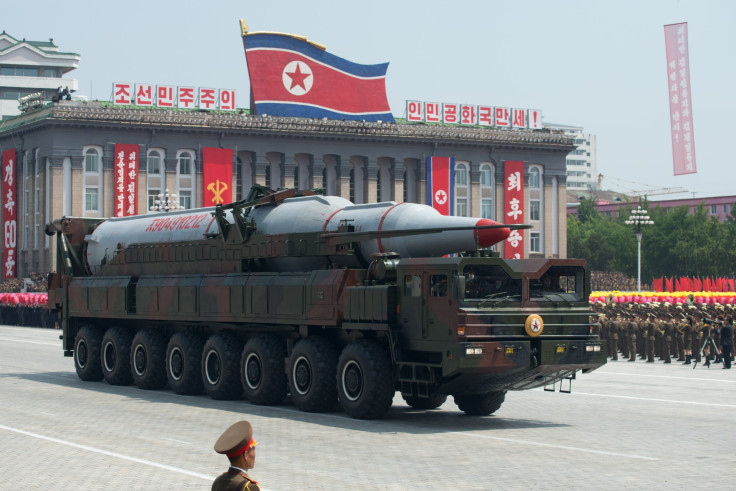China Warns North Korea's Nuclear Capabilities More Advanced That Previously Thought

Chinese nuclear experts have increased their estimates about North Korea's capability to manufacture nuclear material and weapons beyond the levels estimated by the U.S., a move that reflects China's increasing concern about its neighbor's nuclear programs, according to a report in the Wall Street Journal.
Chinese nuclear experts now estimate that Pyongyang may already possess 20 warheads, as well as the capacity to generate enough weapons-grade fissile material to double its arsenal by next year, according to people familiar with a China/U.S. meeting on the matter, the Journal reported.
The increased estimates reflect deepening concern in Beijing about what it sees as U.S. inaction on the issue of North Korea's nuclear weapons program. It is also likely to raise concerns in other Asian nations, particularly Japan and South Korea, both of which have mutual defense treaties with the U.S.
The danger the North Korea's program poses to U.S. territory is disputed, with a recent Congressional report saying that there was “no clear evidence” that Pyongyang had the technology to strike U.S. territory with nuclear missiles.
This analysis is counter to recent warnings by U.S. military leaders, such as Adm. William Gortney, commander of U.S. Northern Command, who was quoted by the Korea Times as saying: "Our assessment is that [North Korea has] the ability to put a nuclear weapon on a KN-08 and shoot it at the homeland."
The news comes just days after South Korea announced a plan to massively ramp up its defense spending over the next five years, to reinforce its capabilities against the North and its missile program.
South Korea's Yonhap news agency reported that the increase of around $8 billion will be focused on missile and air defense capabilities, as well as maintaining troops.
Late last month, China and South Korea's top diplomats publicly agreed that recent nuclear activity in North Korea posed a threat to the stability of the region.
China has been pushing for a resumption of six-party international talks on North Korea's nuclear program. The talks produced a deal in 2005, which broke down in 2008. In part, China's concerns are prompted by the possible deployment of an advanced U.S. missile-defense system, dubbed THAAD (Theater High-Altitude Area Defense), to South Korean territory, which it sees as a threat to its interests.
China has threatened to increase the size of its own nuclear arsenal should such a system be deployed in the region, according to GlobalPost.
© Copyright IBTimes 2024. All rights reserved.












